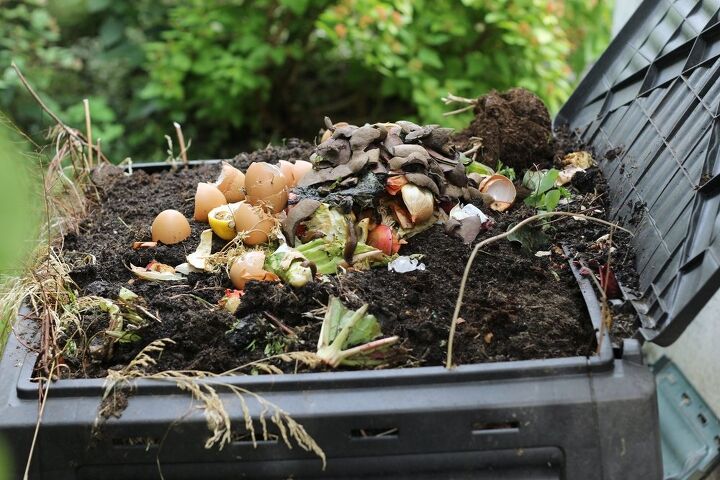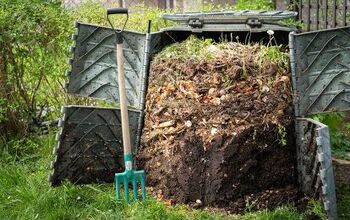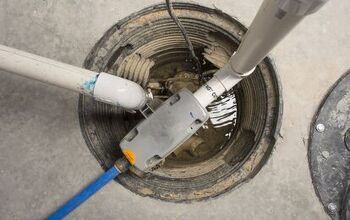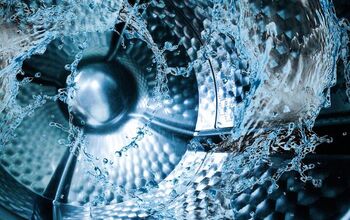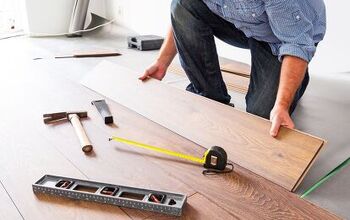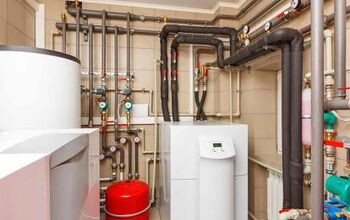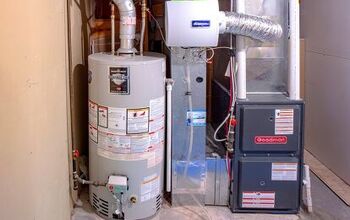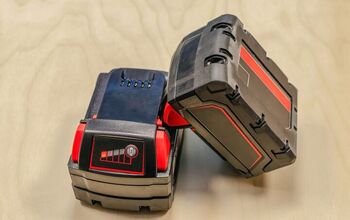Why Does My Compost Smell Like Sewage?

Not only is composting great for the environment, it’s also a rewarding process. Nothing feels better than reducing your carbon footprint at home. However, it can be alarming and discouraging when your compost pile smells foul. So, why does my compost smell like sewage?
Your compost likely smells like sewage because it’s too wet or contains animal products like meat and dairy. Egg shells are fine, but you should never put meat, dairy, or full eggs in your compost pile because it will smell foul. The sewage smell can also come from a lack of oxygen if you compact your compost too much.
Make sure to put more brown materials than green materials in your compost. Green materials release too much nitrogen, and that can cause a sewer-like smell. Follow along as we explore why your compost smells like sewage and see how you can fix it.
Why Does My Compost Smell Bad?
Whether it be moisture or lack of oxygen, there are many reasons why your compost smells like sewage. Luckily, there are only a few causes and solutions to this problem, and they’re each easy to identify.
Your Compost Pile Is Oversaturated
Any experienced composter is all too familiar with the sewage smell that comes from a wet pile. This is hard to avoid for many people. Whether it be from rain or a consistently humid climate, your compost pile is bound to get wet at some point.
It’s common for compost piles to get oversaturated when they are at the bottom of an incline. Water rushes down the hill and can pool inside the compost pile. Unfortunately, it can be quite inconvenient to dry your compost pile.
The easiest way to dry your compost pile stir it with a rake and move it onto a tarp or large board. Make sure you do this on a sunny day. Ideally, you should move the pile into the sun as early as possible, so it has many hours to heat up. Once it dries out, move the compost pile back to its original position. The foul sewage smell should dissipate in no time.
Not Enough Oxygen
Aeration is essential for a successful compost pile. The microbes within your compost pile rely on oxygen to work effectively. Without oxygen, the microbes and other organisms will struggle to break down the materials in your compost pile.
A common mistake people make is that they compact the compost pile too much. You may think this will help make room for more, but it has negative effects. The airflow will suffer and the microbes won’t get enough oxygen.
Because of that, the materials within your compost pile won’t break down quickly enough, and it will smell bad. You can avoid this if you stir and turn over the contents of the pile as often as possible. This will increase the airflow and let the microbes get enough oxygen to work effectively.
The Pile Contains Animal Products
You should never put animal products like eggs, milk, and meat in a compost pile. Even animal fat is enough to make your compost pile smell bad like sewage. Animal products don’t break down the same way as vegetables and fruit.
Meat is especially bad, as it will rot. In as little as 2 hours, you can expect the meat in your compost pile to rot. The rotting smell is unbearable, and it will eventually smell even worse than sewage. Another downside of this is that the rotting animal products may attract scavengers to your compost pile.
Excessive Nitrogen
There’s nothing wrong with putting materials in your compost pile that gives off nitrogen. However, you will notice that your compost pile smells bad if the nitrogen content is excessive. Green materials are the most nutrient-rich, but that doesn’t mean you shouldn’t throw them in the pile.
Instead, spread the materials out and stir the pile so the smell doesn’t become overpowering. It’s also a good idea to be careful about how much green waste you put in the pile each week. You can balance things out if you add more brown materials to the pile. The ideal ratio is 2/3 brown to 1/3 green to avoid bad smells.
Grass and green vegetables are the most common culprits. At first, the pile may smell like ammonia, but it may smell like sewage after a while. Change things up and add coffee grounds and biodegradable paper whenever you notice too much green. Otherwise, you can simply remove some of the excess green materials to reduce the bad compost smell.
How To Fix A Smelly Compost
Compost that smells like sewage isn’t a permanent problem. While most fixes aren’t immediate, you can get rid of the foul smell with a few simple steps, such as:
Stir The Pile Regularly
Ideally, you should stir your compost pile at least twice a week. Some people stir their compost piles every other day to prevent foul smells. However, you should be fine if you simply stir the pile every 3-4 days or as needed. Turning the pile daily is excessive, however, and it may disrupt the microbial process.
Protect Your Compost From Excessive Moisture
You can use several simple materials to protect your compost from moisture, such as newspapers. Add old newspapers, wood chips, and sawdust to the pile. This will help absorb moisture and even help water drain from the pile if you set it up properly. Try to create a small channel of absorbent materials so water can drain as needed.
Layer Your Compost
Properly layering your compost pile can prevent it from smelling bad. Alternate green and brown layers and put mulch or twigs at the bottom of the bin. Put leaves and biodegradable paper on top of the pile for the best results.
Summing It Up
If your compost smells like sewage, it’s likely because the pile is oversaturated. Spread the compost pile on a tarp and let it dry out in the sun to remove the moisture. The sewage smell may also be because the compost pile doesn’t get enough oxygen. You can fix this problem if you stir the pile every 3-4 days. Never compact your compost pile too much, or aeration won’t work.
Related Guides:

Nick Durante is a professional writer with a primary focus on home improvement. When he is not writing about home improvement or taking on projects around the house, he likes to read and create art. He is always looking towards the newest trends in home improvement.
More by Nick Durante



